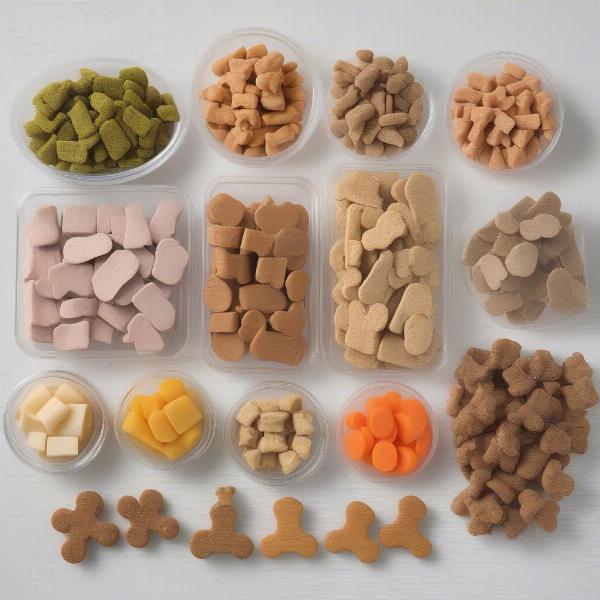Hot dog macaroni and cheese casserole is a comfort food classic for many. But can our canine companions enjoy this cheesy, meaty dish with us? The short answer is: no, not really. While a tiny taste likely won’t cause serious harm, hot dog macaroni and cheese casserole is not a healthy or balanced meal for dogs. Let’s explore why.
Why Hot Dog Macaroni and Cheese Casserole Isn’t Ideal for Dogs
While the individual components of this dish—hot dogs, macaroni, and cheese—might seem harmless in small quantities, their combination and the added ingredients in a casserole create several potential problems for dogs. Macaroni and cheese are high in carbohydrates, which can contribute to weight gain and digestive upset in dogs. Cheese, while a source of protein and calcium, is also high in fat and can trigger pancreatitis in some dogs, especially if consumed in large amounts.
Hot dogs, although a favorite treat for some, contain high levels of sodium and nitrates, both detrimental to canine health. Sodium can lead to dehydration and even sodium ion poisoning, while nitrates have been linked to certain cancers. Onions and garlic, commonly used in casseroles, are toxic to dogs and can cause anemia.
Healthier Alternatives to Share with Your Pup
Instead of sharing your hot dog macaroni and cheese casserole, consider offering your furry friend dog-friendly alternatives that are both tasty and nutritious. Small pieces of cooked, plain chicken or turkey are excellent sources of protein. Steamed carrots, green beans, or sweet potatoes offer vitamins and fiber.
 Dog-friendly treats
Dog-friendly treats
What to Do If Your Dog Eats Hot Dog Macaroni and Cheese Casserole
If your dog accidentally ingests a small amount of hot dog macaroni and cheese casserole, monitor them closely for any signs of digestive upset, such as vomiting, diarrhea, or lethargy. Contact your veterinarian immediately if you notice any unusual behavior or symptoms. If a large amount is consumed, seek veterinary care without delay.
Keeping Your Dog Safe and Healthy
Preventing access to potentially harmful foods is crucial for your dog’s well-being. Store leftovers and human foods securely, and educate family members about safe feeding practices for dogs. Remember, a balanced diet specifically formulated for canines is the best way to ensure your furry friend stays happy and healthy.
FAQ
- Can dogs eat cheese? While a small amount of low-fat cheese is generally okay, large quantities can cause digestive upset due to the high fat content.
- Are hot dogs bad for dogs? Hot dogs are high in sodium and nitrates, which are not good for dogs. Occasional small pieces as a treat are acceptable, but they shouldn’t be a regular part of their diet.
- What should I do if my dog eats something it shouldn’t? Contact your veterinarian immediately for advice.
- What are some healthy treats for dogs? Cooked, plain chicken or turkey, steamed vegetables, and commercially available dog biscuits are good options.
- Why is onion toxic to dogs? Onions contain thiosulphate, which damages red blood cells and can lead to anemia.
ILM Dog: Your Partner in Canine Care
ILM Dog is your go-to resource for reliable and practical advice on all aspects of dog care. We offer expert guidance on everything from breed selection and puppy care to senior dog health and travel tips. Our team of experienced dog professionals is dedicated to providing valuable information to help you navigate the joys and challenges of dog ownership. For any questions or concerns about your furry friend, reach out to us! Email: [email protected], Phone: +44 20-3965-8624. Visit ILM Dog for more expert advice on dog care and nutrition!